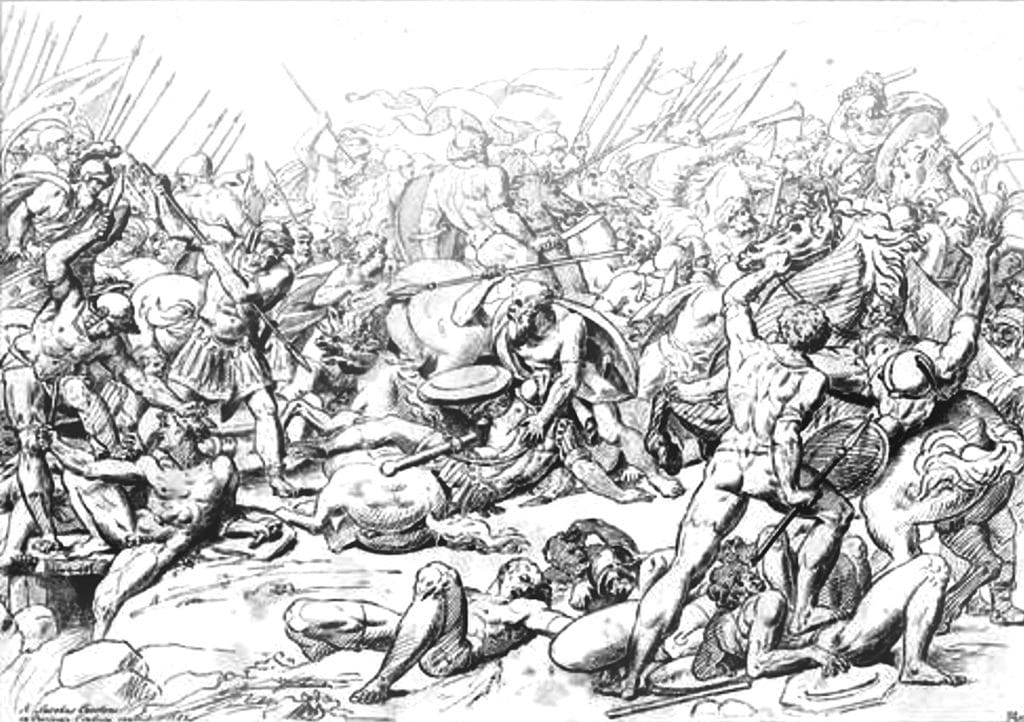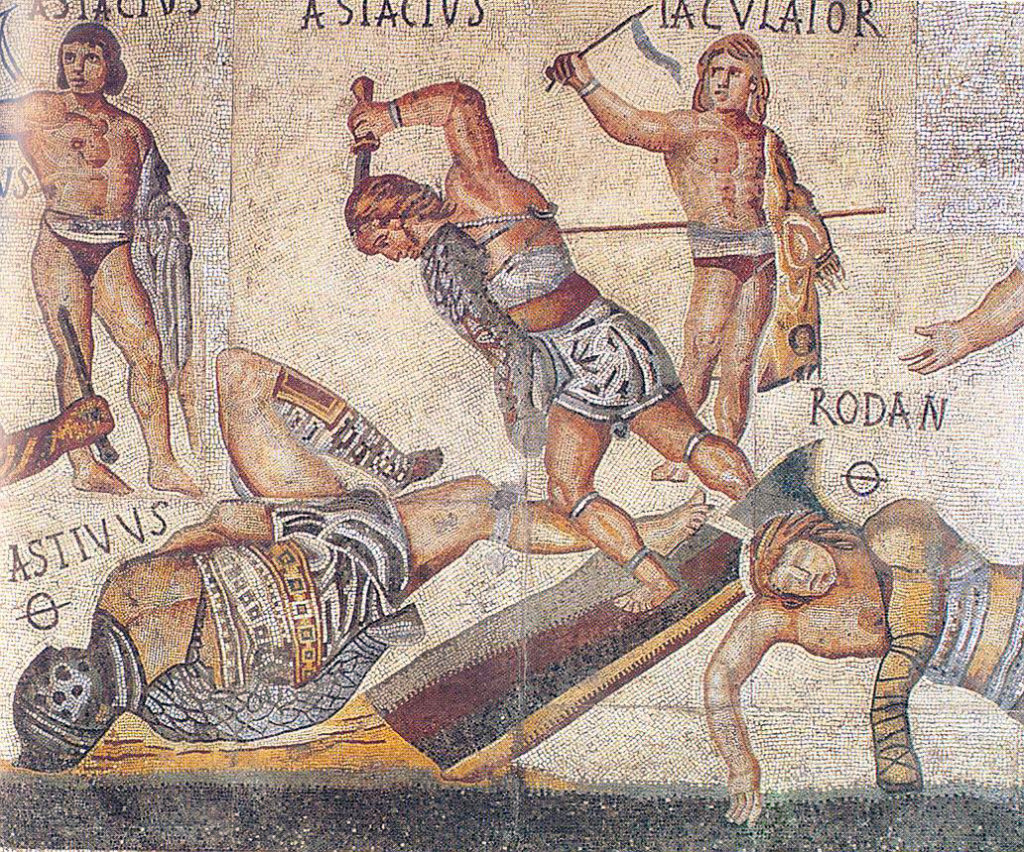Last updated on November 3rd, 2022 at 09:14 pm
The Peloponnesian War was the world war of ancient Greek times. Between 431 BC and 404 BC, the entire Greek world was dragged into it.
This included not just the Greek mainland and the Greek islands but vast parts of the Black Sea and the Mediterranean, even as far west as Sicily, where Greek colonies had been established in the seventh and sixth centuries and became the epicenter of the war in the 410s.
Almost none of the hundreds of states which made up this massive Greek world could avoid becoming drawn into the conflict on the side of either Sparta or Athens.
We know the war today as the Peloponnesian War, as that was how it was referred to by Thucydides, the Athenian historian whose account of the war is our main source for it and who understood it as being against a Peloponnesian enemy, i.e., Sparta.
However, the Spartans and their allies would have considered it the Athenian War. Regardless of what one calls it, we know the result. In 404 BC, after 27 years of conflict and death, the Spartans and their allies defeated Athens, stripping it of its political, commercial, and military power. What had caused it all?
The Greek World, c. 500 BC
To understand how the Peloponnesian War came about, we need to look back to the start of the fifth century BC, around the year 500 BC.
At this time, the Greek world was beginning to enter into a period of unprecedented political, commercial, and cultural power, with states like Athens, Corinth, Argos, Lesbos, Delos, and Samos trading far and wide and sending out colonies of settlers to establish new towns and cities across the Mediterranean.
Yet one power was pre-eminent in the heart of Greece on the mainland from a political and military perspective. This was Sparta, the militaristic society which controlled the southern half of the Peloponnesian Peninsula in the southern part of mainland Greece.
Sparta was not a major economic power, but it possessed an elite warrior citizenry that had subjugated all of its immediate neighbors between the eighth and sixth centuries BC.
It then went on to ally with other states in mainland Greece which acknowledged its political power. These included the two other major Peloponnesian city-states, Corinth and Argos, the latter of which attempted to resist Spartan hegemony in the sixth century BC but which allied then with it after defeat in several wars.

The Persian Wars and the Emergence of Athens
As the fifth century BC dawned, Sparta faced a challenge to its power. This came from the city-state of Athens. The city was located in the Attica region just beyond the Peloponnesian Peninsula.
Although its politics was fragmented, oscillating between a dictatorship and a democracy, it was an increasingly powerful state in the region.
This was based largely on the city’s growth to several hundred thousand inhabitants by 500 BC and the extensive trade in commodities such as pottery, olive oil, and wine conducted through the port of Piraeus on the coast near the city.
Such was Athens’s growing military and economic power that in 490 BC, when the military forces of the vast Persian Empire, based out of modern-day Iran and Iraq, invaded Greece through the island of Euboea, just off the coast of Attica, the Athenians were able to stave off the invasion themselves at the famed Battle of Marathon.
This newfound ascendancy of Athens was even further displayed when the Persians invaded Greece again in 480 BC. During this Second Persian War, the Spartans led the defense of mainland Greece, but it was Athens that largely oversaw the naval defense of the Greek mainland and defeated the Persian fleet at the Battle of Salamis in the Saronic Gulf near Athens.
When the war was won the following year, it was clear to Sparta that it now faced a new threat in the shape of Athens for hegemony over the Greek world.
The Delian League and the Cold War of the Ancient World
Athens began to flex its muscles after the Second Persian War. In 478 BC it founded the Delian League, named after the island of Delos, the rulers of which were allied with Athens.
At first, the League was designed as an organization in which the naval powers of the Greek world, such as Delos, Samos, Lesbos, Chios, Euboea, and scores of other maritime states across the Eastern Mediterranean, joined with Athens to maintain a fleet as a precautionary measure against a new Persian invasion.
However, in the next forty years, Athens used its growing power to subjugate the individual members of the Delian League. They did so by stripping them one by one of their navies and instead converting their obligation to maintain ships to a payment that they made to Athens.
In doing so, they created a situation in which Athens’s fleet and power grew. At the same time, those of dozens of their allies were dismantled, and their ability to resist Athenian commands dwindled.
This was maintained as an ‘alliance’. Still, in reality, by the late 430s, only the island states of Samos, Chios, and Lesbos were allowed to maintain their own ships, and the others had effectively been made subjects of an Athenian Empire.
If any resisted, as the city-states of Naxos and Thasos did in 471 BC and 465 BC, they were quickly crushed by the Athenians. Sparta looked on at the growth of Athenian power and wondered how it could maintain its position.
In response, it began building up its own alliance. Thus, from the 450s BC, the Greek world was increasingly divided into two armed alliances, much like Europe was before the outbreak of the First World War, or the entire world was at the height of the Cold War between the United States and the Soviet Union. Both sides increasingly sought allies wherever they could find them across the Mediterranean and the Black Sea and prepared for war.
The Immediate Causes of the Peloponnesian War
The Peloponnesian War, like almost every major war, had both long-term and immediate causes. For instance, the First World War broke out due to long-term systemic causes such as the rise of a unified Germany in 1871, colonial rivalry in Africa, and the ballooning of nationalism across Europe. But it was a relatively isolated political incident in the Balkans between the Empire of Austria-Hungary and the Kingdom of Serbia, which led to the actual outbreak of the war.
Similarly, while several long-term systemic causes led to the war between Sparta and Athens, there were some immediate causes. The most significant occurred in the mid-430s BC when the city-state of Corcyra, an island nation that was not allied with either Sparta or Athens, ended up in a dispute with Corinth, a Spartan ally.
In the process of this, Corcyra appealed to Athens and became an ally of it. This infuriated Corinth. Then in 432 BC, Athens imposed trade sanctions on its immediate northern neighbor in Attica, the city-state of Megara.
Megara was allied with Sparta as well. Thus, when Corinth called a meeting of the leading states allied with Sparta in 432 BC to deliberate on recent developments, it and others like Megara pressured Sparta to declare war on Athens.
The Spartan government, which by now believed that it needed to act before Athens became so powerful that it could not be stopped, agreed with the Corinthians and Megarans.
The following year, in 431 BC, the Peloponnesian War broke out. Tens of thousands would die before it ended nearly thirty years later, with Sparta becoming the dominant power in the Greek world after that. However, its manpower had been so decimated that it soon declined, paving the way for the rise of Macedon and Alexander the Great in the second half of the fourth century BC.

